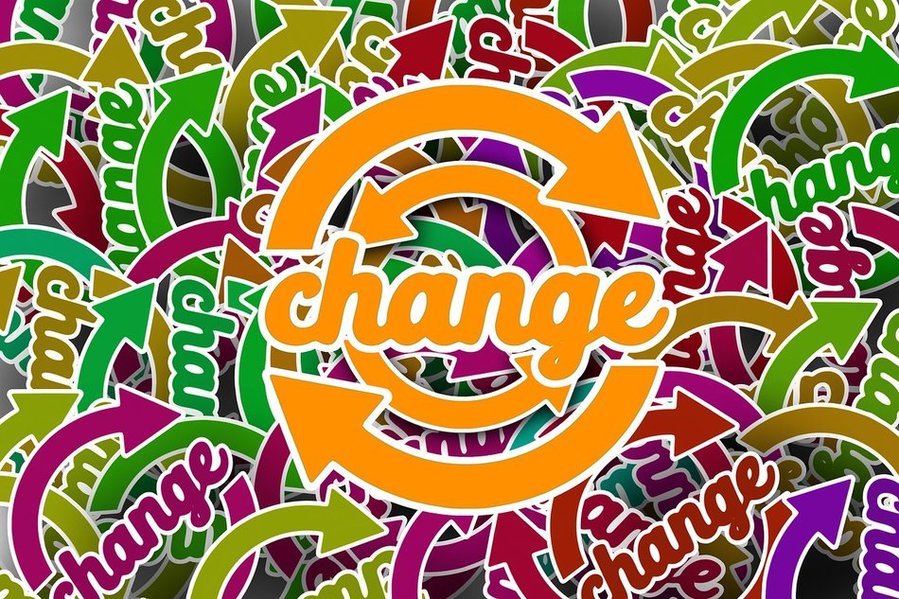Do you often feel weighed down by guilt and regret from the things you’ve done or said in the past? Or, maybe it feels like your inner critic is constantly berating you—holding up past mistakes as evidence that you’re not good enough right now? If you’ve ever found yourself stuck in a never-ending cycle of guilt and self-criticism, then know this… You are not alone.
Remembering our painful experiences can sometimes be a natural part of growing and learning but letting go of that guilt and self-criticism can seem downright impossible. The journey to true self-forgiveness can be long, winding, and emotionally exhausting.
The good news? There is hope! Finding lasting freedom from feeling trapped in an endless loop of negative feelings starts with self-forgiveness.
Self-compassion and self-acceptance also play a big role in letting go of guilt. You can read more about it in these blog posts:
– Self-Compassion for Beginners: Simple Steps to Get Started
– How to Build Self-Acceptance From the Ground Up and Embrace Who You Are
In this blog post, we will provide insight into how to begin the journey to inner peace through a combination of understanding your triggers, developing healthy coping strategies, and forgiving yourself for past missteps along the way. We’ll also uncover what it means to forgive yourself, why it’s essential for our mental well-being and tools for embarking on this journey towards liberation.
So if you’re ready to finally make peace with yourself no matter how much time has passed since the hurtful event occurred, let’s begin!
Definition of self-forgiveness, guilt, and self-criticism
Have you ever made a mistake and found it hard to shake off the feeling of guilt? Or maybe you find yourself being overly critical of yourself, constantly beating yourself up for every little imperfection? Self-forgiveness, guilt, and self-criticism are all intertwined.
Self-forgiveness is a form of grace that we can offer to ourselves when we make mistakes or wrong choices. It’s about acknowledging our imperfections and accepting ourselves with all our flaws.
It is the act of letting go of the shame that often comes with making mistakes and releasing ourselves from the burden of guilt and the negative emotions associated with it. It involves accepting one’s mistakes or wrongdoings, making amends where possible, and choosing to move forward with self-compassion and kindness.
Guilt, on the other hand, is the feeling of remorse or regret that arises from a belief that one has done something wrong or hurtful.
When we make mistakes or behave in ways that do not align with our values, it is natural to feel guilty. However, dwelling on that guilt can be counterproductive and even harmful to our well-being.
Speaking from personal experience, I have found that allowing myself to be consumed by guilt only leads to negative emotions and a lack of progress. Instead, by practicing self-compassion and acceptance, I can move away from feelings of guilt and toward a more empowered emotional state. This allows me to take responsibility for my actions, learn from the situation, and move forward in a positive direction.
Finally, self-criticism is a pattern of negative self-talk and self-evaluation that can arise from guilt or other sources of self-doubt. It’s the tendency to judge oneself harshly and negatively, often leading to a lack of self-confidence and self-esteem.
It is the negative and often harsh evaluation of one’s actions or abilities; the voice that often tells us that we’re not good enough or that we could have done better.
However, being too self-critical can be damaging to our mental well-being. It’s essential to learn how to transform self-criticism into self-compassion and kindness towards ourselves so that it doesn’t become an obstacle to our personal growth and well-being.

The Effects of Guilt and Self-Criticism on Our Lives
Guilt and self-criticism are both emotions that many of us experience at some point in our lives. While they may seem harmless, these emotions can have significant negative effects on our lives.
When we hold onto guilt and engage in self-criticism, we create a cycle of negative emotions and thoughts that can lead to mental and emotional distress. Here are some of the effects of guilt and self-criticism on our lives:
- Low self-esteem: When we engage in self-criticism, we are constantly telling ourselves that we are not good enough. This can lead to feelings of low self-worth and a negative self-image, which can impact our relationships, career, and overall well-being.
- Anxiety and depression: Guilt and self-criticism can lead to anxiety and depression. We may feel overwhelmed by our negative thoughts and emotions, which can lead to difficulty sleeping, loss of appetite, and other physical symptoms.
- Avoidance: When we feel guilty or engage in self-criticism, we may try to avoid situations that trigger these negative emotions. This can lead to isolation and a lack of social support, which can further exacerbate our mental and emotional distress.
- Difficulty with decision-making: Guilt and self-criticism can cloud our judgment and make it difficult for us to make decisions. We may second-guess ourselves and feel paralyzed by fear of making the wrong choice.
- Relationship problems: When we’re feeling guilty or criticizing ourselves, we may project our negative emotions onto others. This can lead to relationship problems and a lack of intimacy and connection with others.
Self-criticism can also cause us to doubt ourselves and our abilities, which can limit our potential and hold us back from trying new things.
In order to live a fulfilling and happy life, it is important to recognize the negative effects of guilt and self-criticism and take steps to overcome them. Self-forgiveness and self-compassion can be great tools for breaking the cycle of negative emotions and thoughts and creating a more positive and fulfilling life.
6 Simple Strategies to Overcome Guilt and Self-Criticism
Feeling guilty or being overly self-critical can be really tough to deal with. Fortunately, there are effective strategies that can help you overcome these negative emotions and find self-forgiveness.
By implementing these strategies into your daily life, you can start to break free from the grip of guilt and self-criticism and improve your overall well-being.
1. Understand the Root Cause
One effective strategy to overcome guilt and self-criticism is to understand the root cause of these emotions. It’s essential to identify why you feel guilty or critical of yourself.
Sometimes these emotions are based on unrealistic expectations or past experiences that have left a mark on us.
Maybe it stems from a fear of failure or a need for perfection. Maybe it’s based on past experiences or messages we’ve internalized from others. Perhaps we were raised in an environment where mistakes were punished, or we were constantly compared to others.
Understanding the root cause can help you gain clarity and shift your perspective. Instead of blaming or criticizing yourself, you can start to see the situation more objectively and take a more constructive approach to the issue at hand.
By recognizing these patterns and working on reprogramming our thoughts, we can begin to shift away from guilt and self-criticism towards a more positive and compassionate mindset.
2. Identify self-critical thoughts and behaviors
It’s easy to get caught up in negative self-talk and beat ourselves up over mistakes or shortcomings, but it’s important to recognize when this is happening and try to change the dialogue in our minds.
Identifying self-critical thoughts and behaviors involves recognizing and acknowledging negative self-talk, patterns of behavior, and habits that contribute to feelings of shame and guilt. This type of self-critical behavior can be harmful to our mental and emotional well-being.
Start by paying attention to your internal dialogue and identifying any negative self-talk. Notice when you start to criticize yourself, whether it’s about something you did or did not do and the language you use when talking to yourself.
Often, we speak to ourselves in a harsher tone than we would use with others, and it’s important to become aware of this and practice speaking to yourself in a kinder, more compassionate way.
Another aspect of identifying self-critical thoughts and behaviors is recognizing patterns of behavior that contribute to feelings of guilt.
For example, if you tend to over-commit yourself or take on more than you can handle, you may set yourself up for failure and then feel guilty when you can’t deliver.
Identifying these patterns can help you adjust your behavior and set more realistic expectations for yourself.
By becoming more aware of your self-critical thoughts and behaviors, you can start to challenge them and replace them with more positive and compassionate ones.

3. Acknowledge and Accept Responsibility
When it comes to self-forgiveness and letting go of guilt, acknowledging and accepting responsibility is a crucial step. It may not always be easy, but it’s an important trait to possess.
It requires us to admit when we have made a mistake, apologize if needed, and take steps to correct the situation. It can be difficult but it’s essential to building trust and maintaining healthy relationships.
It’s important to take ownership of our actions and decisions without denying our role in the situation. This shows that we are mature and reliable, and it demonstrates that we are willing to learn and grow from our mistakes.
By acknowledging our responsibility, we can take steps towards making amends and moving forward. This process can be difficult, but it’s an important part of the journey towards self-forgiveness.
By accepting responsibility, we show that we are accountable for our actions and are willing to make things right. We all make mistakes, but it’s how we handle them that truly matters.
4. Practice Forgiveness
Forgiveness is one of the most challenging yet rewarding practices in our lives. It requires us to let go of grudges and release negative emotions towards those who have hurt us, and to let go of the guilt for the hurt we have caused others.
Forgiveness is not about forgetting, condoning, or excusing the harmful actions of yourself or others, but rather about releasing the anger and resentment that you may be holding onto.
By forgiving yourself and those who hurt you, you can let go of the negative emotions that are weighing you down and preventing you from moving forward. It’s entirely about freeing yourself, healing, and moving forward.
To begin practicing forgiveness, start by acknowledging the hurt and pain that you have caused yourself or others. Allow yourself to feel the emotions that come up, without judgment or self-criticism. Then, make a conscious decision to release the anger and resentment, and let go of the desire for revenge or punishment.
It can also be helpful to recognize that everyone makes mistakes, and that forgiveness is a process that takes time and practice. You may need to revisit this practice multiple times before you can fully release the negative emotions associated with the situation.
While it may not be easy to forgive, remember that forgiveness is a gift we give ourselves, not to the person who hurt us. It’s about choosing to move forward with compassion and understanding.
By practicing forgiveness, we can release the burden of guilt and self-criticism, let go of negative energy, and focus on positivity and growth. So, let’s begin forgiving ourselves and others, and experience the peace and joy that come with it!
5. Learn to let go of past mistakes
So, I don’t know about you, but I tend to hold onto my past mistakes way longer than I should. You know, those cringe-worthy moments that we replay over and over in our minds?
It’s like they’re little weights that I carry around with me all day. But I’ve learned that to move forward and grow, I need to let go of those mistakes. It’s not always easy, but it’s definitely possible.
Holding onto past mistakes can prevent us from moving forward and embracing the present. Letting go involves accepting that we cannot change what has already happened and that ruminating on it will only cause you more pain and suffering. So, how can we let go?
One thing that has helped me is to re-frame my thinking. Instead of focusing on what I did wrong, I try to focus on what I can learn from the situation and think about what I can do differently next time. That way, it becomes less about beating myself up and more about using my experiences to become a better person.
So if you’re struggling to let go of your past mistakes, try this technique out. And remember, it’s never too late to start fresh.
6. Change Your Behavior
When we hold ourselves to high standards, it’s not uncommon to experience feelings of guilt or self-criticism when we fall short. These negative emotions can be overwhelming and hold us back from moving forward.
However, the key to overcoming them is to identify the specific behaviors or actions that are causing them and commit to making a conscious effort to change them.
By shifting our focus from dwelling on what we did wrong to what we can do better next time, we can move towards self-forgiveness and growth.
So, instead of being hard on yourself for your mistakes, acknowledge them, prioritize areas for improvement, and take action toward positive change.

The Importance of Accountability
Taking accountability means acknowledging the impact of our actions on others and ourselves. It involves accepting responsibility for our behavior and making amends if possible. When we hold ourselves accountable for our actions, we take ownership and are more likely to make positive changes.
Being accountable for our actions allows us to take the necessary steps to make things right. This helps us to move past the guilt and self-criticism that often accompany our mistakes and focus on positive actions we can take to improve the situation.
It is important to note that being accountable does not mean punishing yourself. Instead, it is about accepting responsibility for your actions, without letting guilt and self-criticism take over. This can be challenging, especially when you feel that you have let others or yourself down.
However, being accountable and taking action to make amends can ultimately lead to greater self-compassion and healing.
In summary, accountability is a vital step in the process of self-forgiveness and overcoming guilt and self-criticism. It helps us to take responsibility for our actions, make amends if necessary, and move forward with self-compassion and a renewed commitment to our values and personal growth.
Maintaining Progress
While making changes and practicing forgiveness can be difficult, it is important to stay committed to the process to see long-term results. This requires ongoing self-reflection and growth to maintain progress and avoid falling back into negative patterns.
Taking time for self-reflection can help you stay aware of your thoughts and feelings and catch yourself when you begin to slip into self-critical or guilty thinking. It can also help you recognize when you are avoiding accountability and responsibility for your actions.
Continuing to learn and grow is also crucial in the path to self-forgiveness. This could mean reading self-help books, attending therapy, or seeking guidance from a mentor or trusted friend. It’s important to remain open to new perspectives and willing to challenge your beliefs and assumptions about yourself and the world.
By committing to ongoing self-reflection and growth, you can continue to build on the progress you’ve made towards self-forgiveness and lead a happier, more fulfilling life.
Final Thoughts
In conclusion, overcoming guilt and self-criticism is a journey that requires patience, self-compassion, and commitment to self-improvement.
By understanding the root cause of these negative emotions, identifying self-critical thoughts and behaviors, practicing forgiveness, changing our behavior, and maintaining progress through ongoing self-reflection and growth, we can learn to let go of past mistakes and embrace a happier, more fulfilling life.
Remember, self-forgiveness is about taking responsibility, learning from our mistakes, and moving forward with a renewed sense of purpose and self-compassion.
With a little tenderness towards yourself and knowledgeable guidance from those who understand, you can begin to let go of guilt-driven baggage. This approach will have you back on the path to enjoying your path.


0 Comments